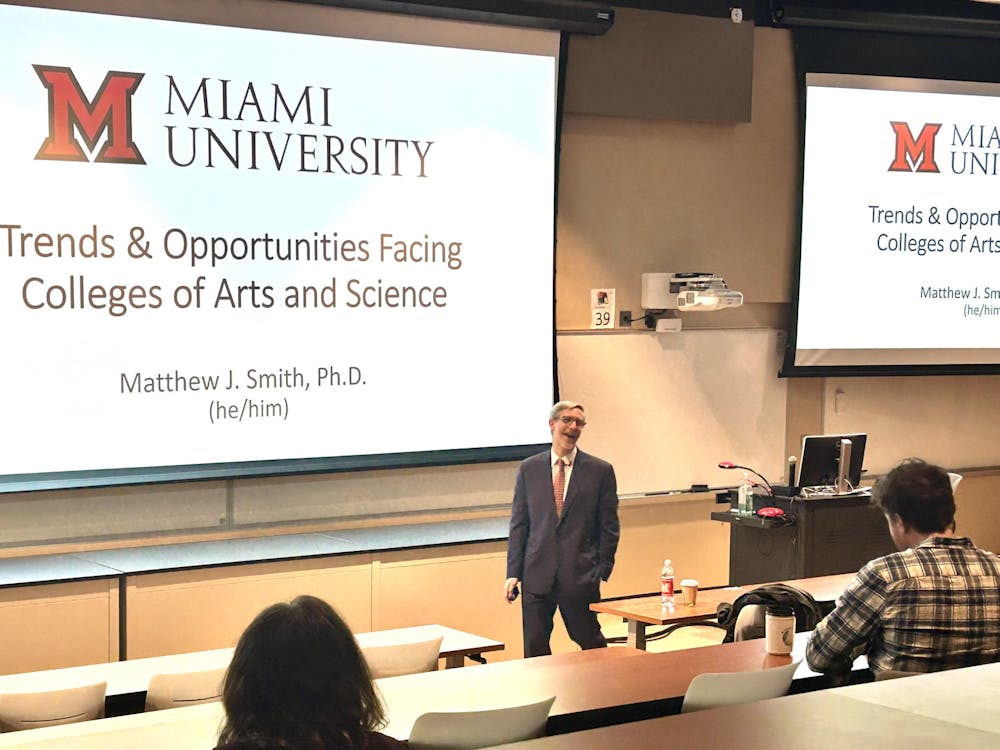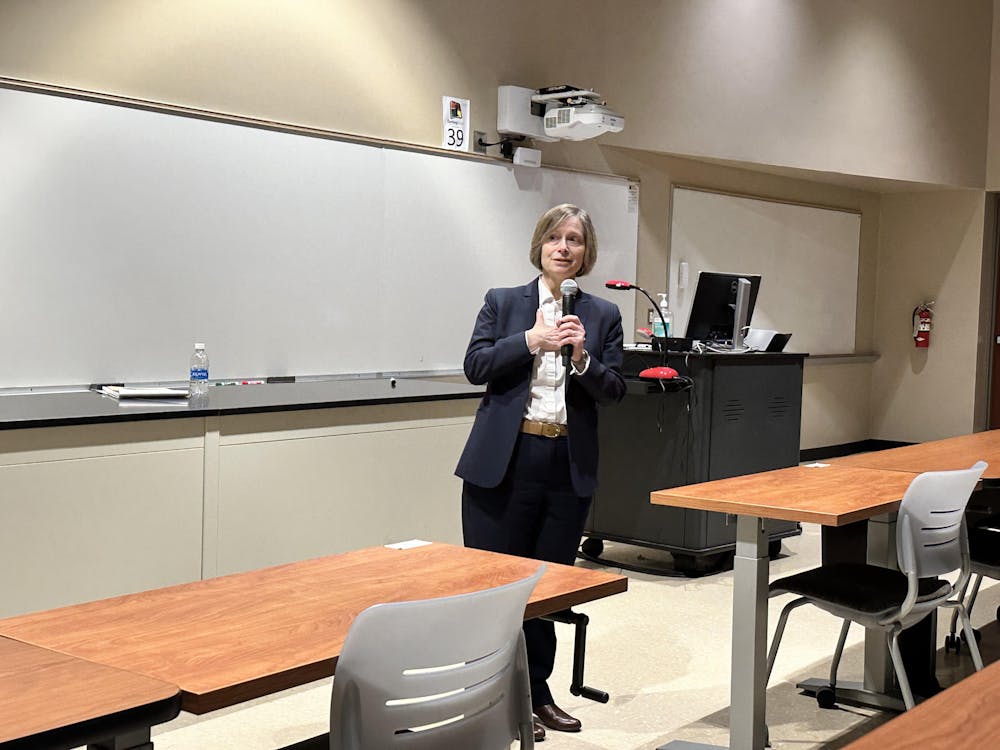Miami University welcomed the staff of Rankin and Associates Consulting to campus on Thursday, May 4 and Friday, May 5 to analyze the results of the campus climate survey, a project designed to evaluate the experience of the current climate from all members of Miami's community.
This was the first time the results of the survey, administered last semester, were released to the Miami community. President Gregory Crawford said his office was not given the data until Thursday.
This release was on schedule with the original timeline -- announced results would be available in early May. However, the university previously stated that because only 17 percent of undergraduate students responded to the survey, data analysis would be impossible.
Sue Rankin, founder of Rankin and Associates and an associate professor of higher education at Penn State University, said this was not the case.
"The number of students who responded is less than 30 percent, so we can't generalize for all students," Rankin said. "But the majority of the sample was still students, so we can do analysis. We just can't generalize."
Rankin said the goal was 30 percent participation for all students, faculty and staff -- a figure echoed by administrators when the survey closed. Miami had an overall response rate of 24 percent, including students, faculty and staff. In total, 6,702 surveys were filled out.
At the results forum, Crawford spoke first, claiming these findings will lead to action. Specifically, steps will be made to address issues highlighted from the data.
"It's been a long process, but now we have some high level results to share with you, and then subsequently over the summer, we'll do much more analyzation of the data and so forth," Crawford said. "So it's a big project, and it took some time, but we're all happy we're wrapping it up, and we can move on to the action step."
Following Crawford, Rankin stated it is ultimately Miami's job to look at the data and decide what issues need to be addressed. Over the last 20 years, Rankin & Associates have conducted more than 170 similar campus climate assessments. Rankin went on to highlight overall challenges Miami could make and opportunities for improvement.
The survey results revealed within the last year, 20 percent of all respondents personally experienced exclusionary conduct at Miami and 31 percent observed exclusionary conduct. Of those who had experienced exclusionary conduct, themselves, the highest basis for exclusion was gender and gender identity, which Rankin stated was unusual. At most schools, Rankin said, an individual's position in the academic system -- i.e. student, faculty or staff -- is largest basis for exclusionary conduct.
Fifty-eight percent of the staff who responded had seriously considered leaving Miami, with the highest ranking reasons being low salary, limited opportunities for advancement and increased workload.
Rankin said there are problems with this survey, such as the failure to represent smaller minority groups, and answers receiving five or fewer responses were combined in order to protect the identity of respondents. Also, since it was self-reported, some individuals may have failed to answer truthfully.
Enjoy what you're reading?
Signup for our newsletter
The full results of this survey will be available on the One Miami website and at King, BEST and regional campus libraries as well as the Office of Student Disability Services.



